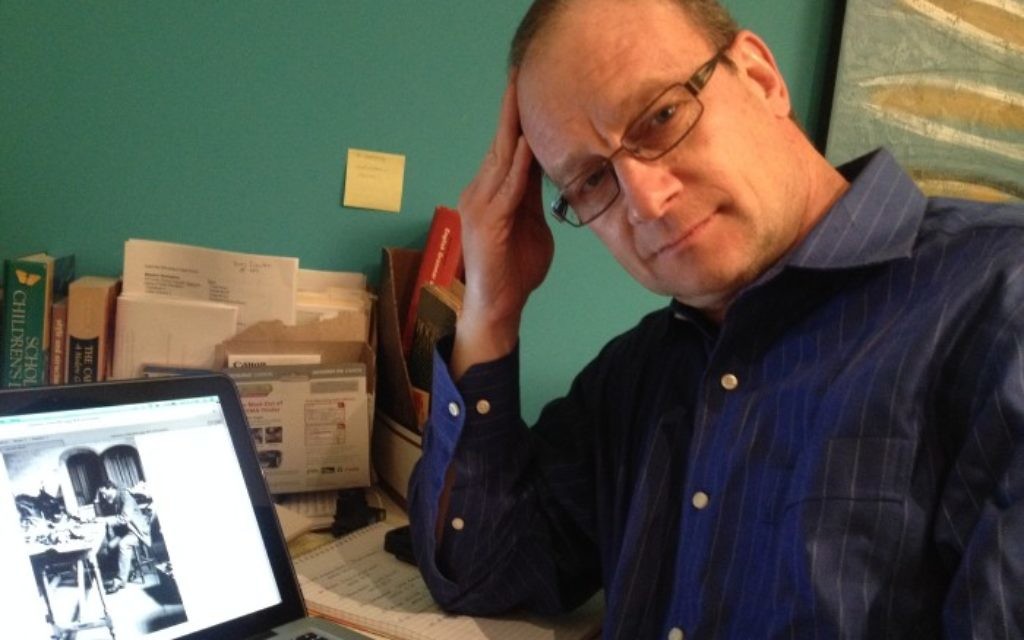The Reason for the Season
This was the first year that the fig tree produced fruit that neared maturity. Unfortunately, disease split the tree at its base, and it had to be removed.
The raspberries and blackberries were plentiful for several weeks. The blueberries suffered in the heat.
Tomatoes and banana peppers were the prize crops in the garden box. The broccoli and eggplant were not.
Get The AJT Newsletter by email and never miss our top stories Free Sign Up
The sunflowers never showed. As for the kiwi, I expect to harvest buckets full, unless I’m entangled in the vines.
Even as summer resists autumn’s advance, the sun sets earlier, and there are hints of fall early in the morning. The days and nights will cool (eventually).
The Jewish calendar says this is the season of introspection and renewal. The year 5777 will begin with Rosh Hashanah eve at sunset Sunday, Oct. 2. The chanting of Kol Nidre at sunset on Tuesday, Oct. 11, will herald Yom Kippur observance.
So where are we as 5776 closes its book?
In Israel, familiar issues will see out yet another year, among them a sometimes troubled relationship between Israel and the Jewish Diaspora in the United States.
There seems little reason for optimism about what used to be known as “the peace process.” My sense is that many American Jews either see no reason to change the status quo between Israel and the Palestinians or have given up hope that those in power on both sides are capable of effecting change.
Israel, as recipient, and the United States, as benefactor (or investor), have inked a 10-year aid agreement valued at $3.8 billion a year. The reported details suggest that while the amount of money allocated by the United States has increased, the terms reduce Israel’s flexibility in spending those funds.
On another front, Israel continues to seek political support and financial contributions from American Jews, while its government accords (or tolerates) a lesser status to the Judaism practiced by the vast majority of American Jews.
As our co-religionists in Europe ask themselves, “Should I stay, or should I go,” we are thankful to live in America, where Jews are relatively well regarded. Still, there are concerns about anti-Israel fervor on some college campuses and the prevalence of Jew hatred online, the latter taking license from the divisiveness surrounding our election of a new president in barely eight weeks.
The metro Atlanta Jewish community continues to grow in number and diversity. Results pending from the community survey conducted in June by the Jewish Federation of Greater Atlanta may confirm greater Jewish life south of the city and in the center of Atlanta as urban-oriented millennials inexorably eclipse their more suburban elders.
Federation is among the communal institutions displaying an “under new management” sign, signaling a generational shift with its hiring of a new chief executive.
The film, music and book festivals continue to expand avenues for Jewish connection.
The number of Israelis in the Atlanta area has grown to maybe 12,000 or more, and the (thankfully still open) consulate is working to increase their interaction with the wider community.
Meanwhile, as local Jewish organizations and individuals devote themselves to building bridges (and a Habitat for Humanity house) with other faiths, we Jews seem incapable of discussing politics without questioning or demeaning one another’s patriotism as Americans, feelings for Israel or definitions of Jewish values.
Rabbis who might be tempted to take advantage of full houses during the High Holidays tread at their own risk if they venture beyond urging congregants to exercise their right to vote by discussing either candidates or issues on the ballot.
These are the weeks when Judaism tasks us to consider where we’ve been, seek forgiveness from those we have wronged, forgive those who have wronged us, and, just as important, forgive ourselves for succumbing to human frailties. That should keep all of us busy for a while.
As the seasons change and I consider fall plantings for the garden, I wish you a healthy, productive and sweet year. L’shanah tovah tikatevu.





comments